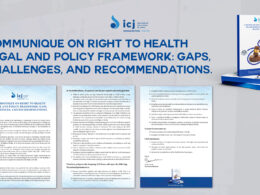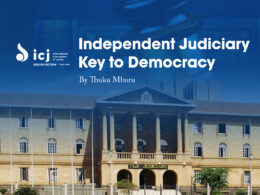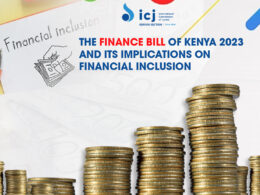The objective of the Access to Justice(A2J) Program is the promotion of the citizen’s access to the courts of law in Kenya and Africa. A2J promotes access to justice through advocating for an independent and accountable judiciary in Kenya and in the region. The A2J engages the judiciary with the focus on the rule of law, human rights, with a view to constitutionalism.
The principal means of delivering civil and criminal justice is though the formal courts of law. In Kenya A2J is hindered by a number of factors. Kenya has 332 judges and magistrates serving a population of 38 million people, yet the maximum number of judges and magistrates prescribed by law have not been attained. Therefore, ICJ-Kenya continually advocates for an increase in the number of judges and magistrates, within the next three years, to bring this at least to the prescribed maximum number by law.
ICJ-Kenya is also at the forefront of advocacy to establish a small claims court as a means of increasing and diversifying access to justice. In the next 3 years ICJ-Kenya will work for the passage of legislation enacting a small claims court, and during the following two years, agitate for the implementation of this legislation. An integral part of ICJ-Kenya’s work will be to raise the awareness of the general populace as to the purposes of the small claims court regime with a view to promote citizen demands for its establishment. The discussion on small claims justice is tied to questions of reduced or no costs for accessing the courts, which is an important dimension of access to justice.
The new Constitution promises radical institutional changes in the Judiciary, including the vetting of serving judges and magistrates, and the establishment of a Supreme Court. ICJ-Kenya, through the Judicial Reforms Think-tank and Civil Society Judicial Reforms roundtable, will support the vetting process by contributing to discourse on how this should be organized and also direct support for the vetting panels themselves through capacity building.
With a view to contributing to the improvement of access to justice and governance in Africa during the period of this Plan, ICJ Kenya will support 3 litigation interventions invoking the African Charter on Human and Peoples Rights, the tribunals and courts of justice formed under the African Union system and Regional Economic Communities on the continent.
In addition judicial reform, the A2J works on projects focused on anti-torture and electoral reform. A2J undertakes several activities with the support of its funders. They include:
- Advocate for an increase in the number of judges and magistrates
- Work for passage of legislation enacting the small claims court
- Support awareness activities in the legal profession and within the larger public, and will also support the implementation of court-annexed mediation, as a means of addressing case backlogs








